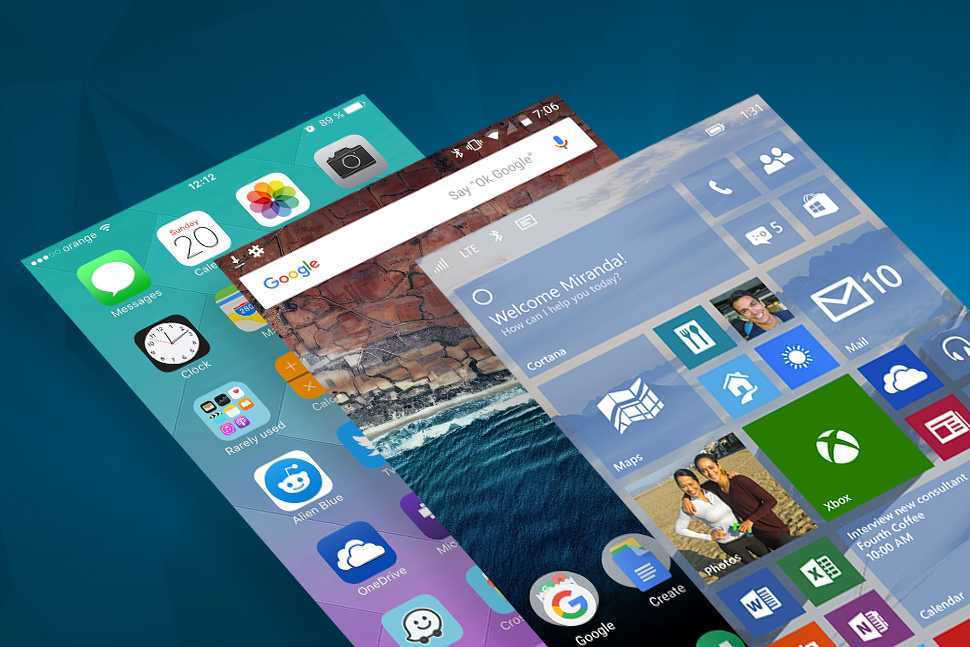
Choosing operating systems for tablets: Android, iOS or Windows?
Tablets have become an integral part of our daily lives, offering mobility, versatility and convenience. However, when you're in the market for a tablet, one of the most important decisions you make is choosing the right operating system (OS). Android, iOS and Windows are the three main contenders, each with their own set of features, benefits and ecosystem. In this article, we'll look at key considerations to help you make an informed choice.
Android: Versatile and customizable
Pros:
- A Wide Range of Options: Android tablets come in a variety of sizes, styles, and price ranges to appeal to a variety of audiences.
- Customization: Android offers extensive customization options, allowing users to customize their devices using widgets, themes, and third-party launchers.
- App Variety: The Google Play Store boasts an extensive library of apps, including both free and paid options.
- Multitasking: Android tablets often excel at multitasking, with features like split-screen mode for increased productivity.
- Integration with Google services: If you use Google services such as Gmail, Drive and Photos, Android provides seamless integration.
Cons:
- Fragmentation: Due to the variety of manufacturers and devices, Android experiences fragmentation, causing OS updates to be delayed for some users.
- Security concerns: Android is more susceptible to malware and security threats, although Google is improving its security measures.
- Inconsistent user interface: Different manufacturers may offer different user experiences due to user interface systems (UIS).
iOS: Streamlined and user-friendly
Pros:
- Consistency: iOS provides a consistent user experience across all Apple devices, ensuring ease of use and familiarity.
- App Store Quality: The App Store is known for its curated, high-quality selection of apps.
- Timely updates: Apple provides regular and timely operating system updates for a wide range of devices.
- Security: iOS is considered highly secure, with strong privacy features and frequent security patches.
- Optimized for tablets: iPadOS, Apple's operating system for tablets, improves productivity with features like multitasking and Apple Pencil support.
Cons:
- Limited Customization: iOS prioritizes consistency over customization, so users have less flexibility in customizing their devices.
- Premium Prices: Apple tablets often have higher price tags than some Android alternatives.
- Closed Ecosystem: Apple's ecosystem is tightly controlled, which may limit compatibility with non-Apple devices and services.
Windows: a productivity powerhouse
Pros:
- Full PC Interoperability: Windows tablets are fully desktop compatible, making them ideal for productivity tasks.
- Legacy Software: Windows tablets can run legacy Windows apps, giving them an advantage in professional settings.
- Multi-window support: Windows provides robust multitasking capabilities, allowing users to run multiple applications simultaneously.
- Stylus support: Many Windows tablets support a stylus for precise input, making them suitable for artists and professionals.
- File Management: Windows excels at file management, offering a familiar interface for PC users.
Cons:
- Size and Weight: Windows tablets tend to be bulkier and heavier than their Android and iOS counterparts.
- Battery life: Despite the improvement, battery life on Windows tablets may be shorter than their competitors.
- App Availability: The Microsoft Store offers fewer apps than the Android and iOS app stores, although the number is growing steadily.
- Learning curve: Windows tablets, with their desktop-like interface, may have a steeper learning curve, especially for non-Windows users.
Choosing the Right Operating System: Consider Your Needs
Ultimately, choosing a tablet operating system depends on your specific needs and preferences. Here are some tips to help you decide:
-
Android: Choose Android if you value customization, a wide range of options, and affordability. It's great for users who want versatility and don't mind a little tweaking.
-
iOS: Choose iOS if you prioritize user experience, timely updates, and a secure environment. It is ideal for those who are deeply interested in the Apple ecosystem.
-
Windows: Choose Windows if you need a tablet for productivity, especially if you rely on legacy Windows software or need a PC-like interface. It is preferred by professionals and artists.
Consider your usage patterns, application requirements, and compatibility with existing devices when making your decision. Whatever OS you choose, today's tablets offer exciting ways to enhance your digital lifestyle.






